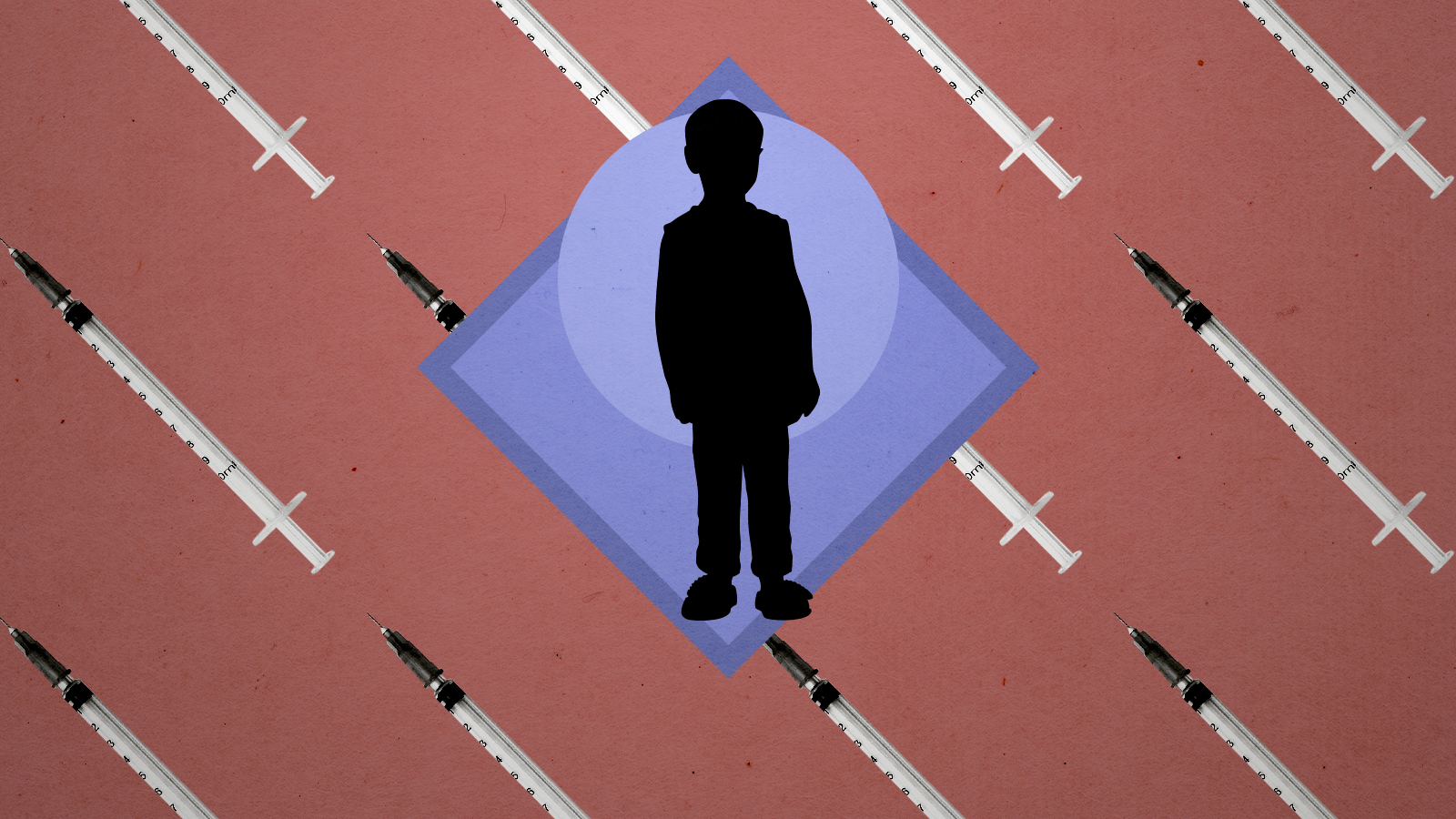The week's best parenting advice: December 28, 2021
What's going on with toddler vaccines, why your kid probably isn't a narcissist, and more


A free daily email with the biggest news stories of the day – and the best features from TheWeek.com
You are now subscribed
Your newsletter sign-up was successful
1. What's going on with toddler vaccines?
Parents who have been waiting patiently to vaccinate their young children got some unfortunate news earlier this month when Pfizer announced that its new low-dose vaccine did not provide adequate protection against COVID-19 in children ages 2 to 5. But hope is not lost, only delayed, writes Donavyn Coffey in Fatherly. The course of two three-microgram doses tested in children under five — which is a tenth of the dose given to anyone over 12 years old — simply failed to produce the antibody levels required by the Food and Drug Administration. Rather than upping the dose, Pfizer is updating its trial to test how a third dose performs, which means that a vaccine won't be available for children under five until mid-2022. The good news is that this delay has nothing to do with safety concerns, so parents can rest easy about that.
2. Your kid probably isn't a narcissist (even though they act like one)
It's really difficult to identify clinical narcissism in children — so difficult that doctors can't diagnose them with it, writes Maressa Brown in Parents. Many narcissistic behaviors —monopolizing conversations, belittling others, exaggerating one's success, struggling with empathy, pushing against authority, or throwing temper tantrums — are normal at certain stages of child development. And children often have temporary bouts of these behaviors as a result of growth changes, medications, and family or school-related stress. "For this reason, it is exceptionally important for parents not to read too much into a child's behavior at any one time during their development," says psychologist Michele Nealon. Parents trying to separate normal childhood self-absorption from something more troubling "should look for patterns of [narcissistic] behavior that are consistent, extreme, and causing a negative impact on both family and social relationships."
The Week
Escape your echo chamber. Get the facts behind the news, plus analysis from multiple perspectives.

Sign up for The Week's Free Newsletters
From our morning news briefing to a weekly Good News Newsletter, get the best of The Week delivered directly to your inbox.
From our morning news briefing to a weekly Good News Newsletter, get the best of The Week delivered directly to your inbox.
3. The importance of maternal mental health for children
Several new studies suggest that maternal mental illness can harm the child's cognitive development — but a supportive community can go a long way to mitigating the effect. Observing families in Bhutan, Turkey, and Sweden, the researchers found that children's cognitive abilities were impacted by the mental health of their mothers in all three countries. "The child's intelligence did not seem to have been affected; rather, it was the child's attentiveness, social understanding, and ability to make decisions that were adversely affected," reports Science Daily. The impact was stronger among women with little education, low social support, and those experiencing discrimination or falling social status. Meanwhile, support from a partner, and having a large family or a large social network, can help to lessen the impact.
4. How to get a nervous toddler to take a COVID test
Giving a small child a COVID test isn't a fun experience, but according to Sarah Wheeler, there are ways to make it less miserable — for everyone involved. After explaining what COVID is and why they need to be tested for it (which will help to ensure that they don't fill in their own, likely worse, explanation), parents can read them a book or "social story" about COVID testing. Originally developed to support autistic children, "social stories" matter-of-factly lay out the details of everyday experiences that kids find scary. (And many social stories about getting a COVID test are already available for download on the internet.) Playing doctor — COVID-test style — can also help to make the process seem less scary. It may help to do a low-stakes practice test before you really need one, like before an important flight. And when the time comes for the real thing, give the child as much agency in the process as possible. Asking them whether they want to drive or take the bus to the test center, or whether they want mom or dad to administer the test, can help children feel like they have more control over the situation.
A free daily email with the biggest news stories of the day – and the best features from TheWeek.com
5. Stop worrying so much about your kids' grades
It's natural enough to worry about your child's school performance, but it might not be a great idea, writes Salina Jivani in Good Housekeeping. "Children pick up on parents' anxiety about school performance and can internalize it," says counselor Brent Sweitzer. Plus, children need to learn to trust themselves, which can only happen if their parents trust them. One great way to establish that trust, Sweitzer suggests, is by letting children take on a developmentally appropriate level of responsibility for their own work, which means giving them room to bomb a few tests or assignments. Plus, grades are affected by a number of factors — teacher severity or leniency, varying evaluation criteria, and teacher error — that have nothing to do with a child's abilities. So while it's tempting to use your child's grades as a barometer for your success as a parent, it's important to recognize that grades simply aren't everything.
Stephanie H. Murray is a public policy researcher turned freelance writer.
